I am using NodaTime in an application, and I need the user to select their timezone from a dropdown list. I have the following soft requirements:
1) The list only contain choices that are reasonably valid for the present and near future for real places. Historical, obscure, and generic timezones should be filtered out.
2) The list should be sorted first by UTC offset, and then by timezone name. This hopefully puts them in an order that is meaningful for the user.
I've written the following code, which does indeed work, but doesn't have exactly what I'm after. The filter probably needs to be adjusted, and I'd rather have the offset represent the base (non-dst) offset, rather than the current offset.
Suggestions? Recommendations?
var now = Instant.FromDateTimeUtc(DateTime.UtcNow);
var tzdb = DateTimeZoneProviders.Tzdb;
var list = from id in tzdb.Ids
where id.Contains("/") && !id.StartsWith("etc", StringComparison.OrdinalIgnoreCase)
let tz = tzdb[id]
let offset = tz.GetOffsetFromUtc(now)
orderby offset, id
select new
{
Id = id,
DisplayValue = string.Format("({0}) {1}", offset.ToString("+HH:mm", null), id)
};
// ultimately we build a dropdown list, but for demo purposes you can just dump the results
foreach (var item in list)
Console.WriteLine(item.DisplayValue);
